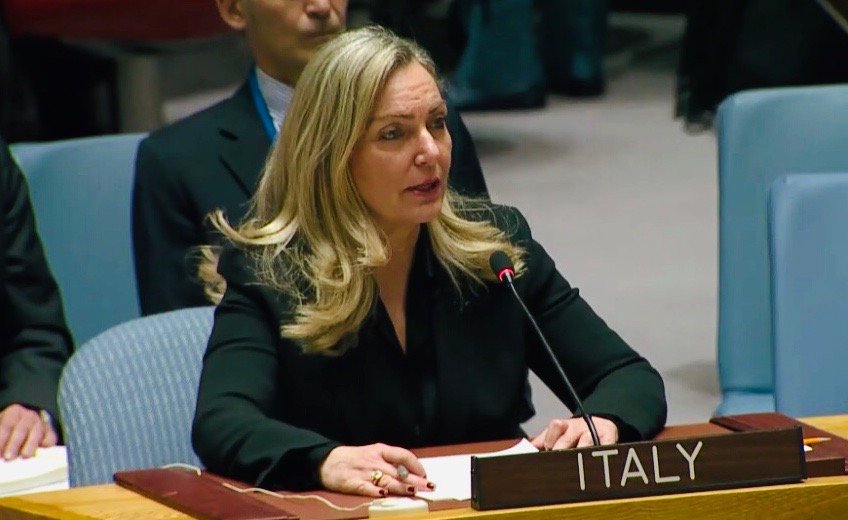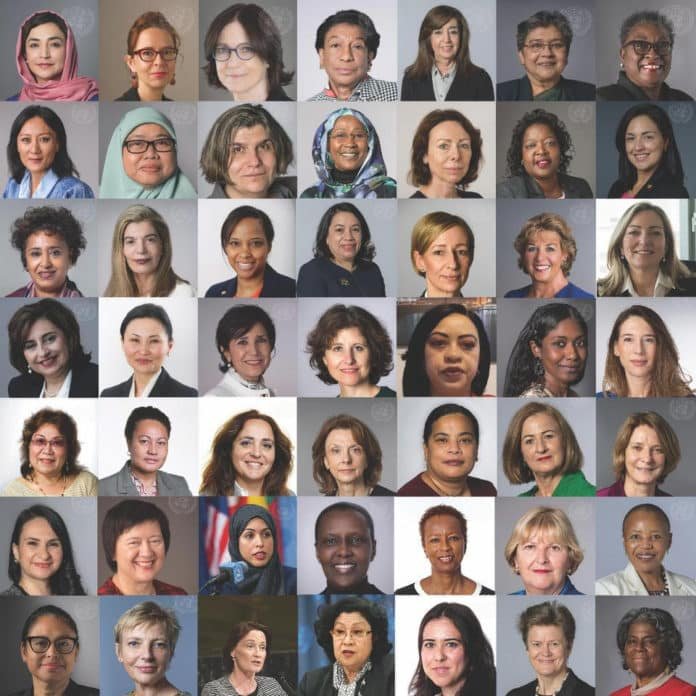NEW YORK, MARCH 31 – Women Ambassadors to the United Nations spoke out for women and girls rights and for an inclusive, equal global recovery after the COVID 19 pandemic. “I thank all the women colleagues who joined the call”, the Italian permanent representative Mariangela Zappia, who promoted the initiative, said on Twitter.
Women ambassadors to the UN 🇺🇳 speak out for women and girls rights and for an inclusive, equal global recovery. @MAZappia 🇮🇹 thanks all the women colleagues who joined the call. Read it here 👇https://t.co/8VDLmqbHE5
— Italy UN New York (@ItalyUN_NY) March 31, 2021
“There’s no more time to lose. We’ve lost enough to COVID already”, the 49 Ambassadors said in an open letter published on several newspapers around the world including “Usa Today”, “La Repubblica” in Italy, “Infobae” in Argentina, “The National” in the United Arab Emirates, and “El Universal” in Mexico: “We must rebalance the composition of decision-making bodies. We need to integrate gender into the design and implementation of recovery plans”, said the 49 diplomats, including, in alphabetic order, Adela Raz from Afghanistan and Linda Thomas-Greenfield from the United States: “This will also require role models. As women ambassadors, we bear testament to young generations of girls and women across the world showing that, like us, they can make it. No career and no goal is off-limits for them, as they are in all their diversities, nor beyond their capacities”.
 The op-ed was published on the last day of Women’s History Month against the background of significant setbacks on the empowerment of women caused by the pandemic. “From our seats in the General Assembly and our screens at home we have seen it growing: the increase in deaths; gender-based, including intimate partner, violence; abuse of women and girls who speak out; the widening of the gender gap for access to digital technologies; the loss of jobs, the decrease of women’s participation in public life and decision-making; disrupted access to essential health care; increase in child marriage; and the diminished access to education. Day by day in this yearlong battle against the pandemic we have seen how women are impacted twice: first by the virus, and then by its devastating secondary effects. We are 49 women ambassadors representing countries from all regions of the world, and we believe that such a reality is simply intolerable”.
The op-ed was published on the last day of Women’s History Month against the background of significant setbacks on the empowerment of women caused by the pandemic. “From our seats in the General Assembly and our screens at home we have seen it growing: the increase in deaths; gender-based, including intimate partner, violence; abuse of women and girls who speak out; the widening of the gender gap for access to digital technologies; the loss of jobs, the decrease of women’s participation in public life and decision-making; disrupted access to essential health care; increase in child marriage; and the diminished access to education. Day by day in this yearlong battle against the pandemic we have seen how women are impacted twice: first by the virus, and then by its devastating secondary effects. We are 49 women ambassadors representing countries from all regions of the world, and we believe that such a reality is simply intolerable”.
The 49 Ambassadors affirm that “the COVID-19 crisis has a woman’s face” because women are on the front line as leaders delivering effectively with vision and care, but also as victims of structural vulnerabilities and of violence and abuse. This March the UN Commission on the Status of Women (CSW) focused on two issues: fighting gender-based violence, and scaling up women’s full and effective participation at all levels and in all sectors. Meaningful participation of women in politics, institutions and public life is the catalyst for that transformational change, which benefits society as a whole. Only four countries in the world have a parliament that is at least 50% women. Worldwide only 25% of all parliamentarians are women. Women serve as heads of state or government in only 22 countries today, and 119 countries have never had a woman leader. According to UNESCO, 30% of the world’s researchers are women.While 70% of the health and social care workforce are women, they make up only 25% of leaders in the global health sector.
Current projections show that if the trends continue, gender equality in the highest positions of power will not be reached for another 130 years: “These figures speak of unacceptable barriers and bottlenecks that continue to block women’s participation”, said the Ambassadors in the op-ed. “While as women Ambassadors we are still under-represented here in New York — only 25% of permanent representatives are women — we are committed to being a driving force to shift mindsets. We are long past the point where women should have to justify their seat at the table”.
The number of women Permanent Representatives rose to a record of 50 in 2019, compared with about 15 to 20 back in the 1980s and early 1990s. But the history-making number was still short of gender parity, falling far behind the 140 men who were PRUNs in the 193-member General Assembly, the highest policy-making body at the United Nations. (@OnuItalia)

